Phonetic laws and orthoepic rules. "Tense points of orthoepy". The pronunciation norm is recommended and acceptable. Orthoepic dictionary and reference books for radio and television announcers. Russian language and culture of speech. Orthoepic and accentolo
Orthoepy. Modern orthoepic norms. Basic orthoepic rules of modern Russian literary language.
In the literary language, we focus on generally accepted patterns - norms. Norms are characteristic of different levels of the language. There are lexical, morphological, spelling, phonetic norms. There are pronunciation rules.
Orthoepy - (Greek orthos- "simple, correct, epos" - "speech") is a set of rules that establish pronunciation standards.
The subject of orthoepy is oral speech. Oral speech is accompanied by a number of mandatory features: stress, diction, tempo, intonation. But orthoepic rules cover only the area of pronunciation of individual sounds in certain phonetic positions or combinations of sounds, as well as the features of the pronunciation of sounds in certain grammatical forms, in groups of words or individual words.
Compliance with orthoepic rules is necessary, it helps to better understand speech.
Pronunciation norms are of a different nature and have different origins.
In some cases, the phonetic system dictates only one possibility of pronunciation. A different pronunciation will be a violation of the laws of the phonetic system.
For example, indistinguishing between hard and soft consonants
or pronunciation of only hard or only soft consonants; or distinguish between voiceless and voiced consonants in all positions without exception.
In other cases, the phonetic system allows not one, but two or more possibilities of pronunciation. In such cases, one possibility is recognized as literary correct, normative, while others are evaluated either as variants of the literary norm, or are recognized as non-literary.
Norms of literary pronunciation are both a stable and developing phenomenon. At any given moment, they contain both something that connects today's pronunciation with past eras of the literary language, and something that arises as new in pronunciation under the influence of the live oral practice of a native speaker, as a result of the internal laws of the development of the phonetic system.
Contemporary Russian pronunciation evolved over the centuries, from the 15th to the 17th centuries. on the basis of the so-called Moscow vernacular, formed on the basis of the interaction of northern Great Russian and southern Great Russian dialects.
By the 19th century Old Slavonic pronunciation developed in all its main features and, as an exemplary one, extended its influence to the pronunciation of the population of other major cultural centers. But there was never complete stability in pronunciation; there were always local differences in the pronunciation of the population of large centers.
So, the norms of literary pronunciation are a stable and dynamically developing phenomenon; they are based on the laws of the functioning of the phonetic system of the language and on socially developed and traditionally accepted rules, which are subject to changes in the process of development of the oral language. literary speech as a result of the influence of various factors language development. These changes initially have the character of fluctuating norms, but if such changes do not contradict the phonetic system and become widespread, they lead to the emergence of variants of the literary norm, and then, possibly, to the establishment of a new pronunciation norm.
There are several sources of deviation from the norms of literary pronunciation: 1) the influence of spelling, 2) the influence of dialect features, 3) the influence of the native language (accent) - for non-Russians.
The heterogeneity of pronunciation in different population groups determined the emergence of the doctrine of pronunciation styles. For the first time, L.V. Shcherba took up the issues of pronunciation style, he distinguished two styles of pronunciation:
1. Full, characterized by maximum clarity and clarity of pronunciation;
2. Incomplete style - the style of ordinary casual speech. Within these styles, various variations are possible.
In general, the current orthoepic norms of the Russian language (and their possible options) are registered in special dictionaries.
It should be highlighted:
a) rules for the pronunciation of individual sounds (vowels and consonants);
b) rules for pronunciation of combinations of sounds;
c) rules for pronunciation of individual grammatical forms;
d) rules for pronunciation of individual borrowed words.
1. The pronunciation of vowels is determined by the position in pre-stressed syllables and is based on a phonetic law called reduction. Due to reduction, unstressed vowels are preserved in duration (quantity) and lose their distinct sound (quality). All vowels undergo reduction, but the degree of this reduction is not the same. So, the vowels [y], [s], [and] in an unstressed position retain their main sound, while [a], [o],
[e] qualitatively change. The degree of reduction [a], [o], [e] depends mainly on the place of the syllable in the word, as well as on the nature of the preceding consonant.
a) In the first pre-stressed syllable, the sound [Ù] is pronounced: [vÙdy / sÙdy / nÙzhy]. After hissing, [Ù] is pronounced: [zhÙra / shÙry].
In place of [e] after hissing [w], [w], [c], the sound [ye] is pronounced: [tsyepnoį], [zhyeltok].
After soft consonants in place [a], [e], the sound [ie] is pronounced:
[ch٬iesy / s٬iela].
b) In the rest of the unstressed syllables, in place of the sounds [o], [a], [e], after solid consonants, the sound [b] is pronounced:
par٨vos] After soft consonants in place of sounds [a], [e], it is pronounced [b]: [n" tÙch "okʹ / h" mÙdan].
2. Pronunciation of consonants:
a) the norms of literary pronunciation require positional exchange paired deaf and voiced in a position in front of the deaf (only deaf) - voiced (only voiced) and at the end of the word (only deaf): [chl "epʹ] / trʹpkʹ / proʹ bʹ];
b) assimilation softening is not necessary, there is a tendency to lose it: [s"t"inaʹ] and [st"inaʹ], [z"d"es"] and [zd"es"].
3. Pronunciation of some combinations of vowels:
a) in pronominal formations what, to - th is pronounced like [pcs]; in pronominal formations such as something, mail, the pronunciation [h "t] is almost preserved;
b) in a number of words of predominantly colloquial origin, [shn] is pronounced in place of ch: [kÙn "eshn / nÙroshn].
In words of book origin, the pronunciation [h "n] has been preserved: [ml "ech" nyį / vÙstoch "nyį];
c) in the pronunciation of the combinations vst, zdn, stn (hello, holiday, private trader), one of the consonants usually decreases or drops out: [holiday "ik], [h "asn" ik], [hello]
4. Pronunciation of sounds in some grammatical forms:
a) pronunciation of the form I.p. unit adjectives without stress: [red / s "in" iį] - under the influence of spelling arose - th, - y; after back-lingual r, k, x ® uy: [t "iх" iį], [m "ahk" iį];
b) pronunciation - sya, - sya. Under the influence of spelling, soft pronunciation became the norm: [n'ch "ielas" / n'ch "iels" aʹ];
c) the pronunciation of the verbs na-ive after g, k, x, the pronunciation [g "], [k"], [x"] became the norm (under the influence of spelling): [vyt "ag" ivyt "].
5. Pronunciation of borrowed words.
In general, the pronunciation of borrowed words is subject to the phonetic system of the Russian language.
However, in some cases there are deviations:
a) pronunciation of [o] in place of [Ù]: [boaʹ / otel" / poet], although [rÙman / [rÙĵal" / prucent];
b) [e] is preserved in unstressed syllables: [Ùtel"ĵé / d"epr"es"iįb];
c) before [e], g, k, x, l are always softened: [g "etry / k" ex / bÙl "et].
The pronunciation of borrowed words should be checked in a dictionary.
Speech norms act differently in different styles of pronunciation: in colloquial, in the style of public (bookish) speech, of which the first is realized in everyday communication, and the second in reports, lectures, etc. The differences between them relate to the degree of reduction of vowels, simplification of consonant clusters (in colloquial style the reduction is more significant, the simplification is more intensive), etc.
Questions:
1. What is the subject of study of orthoepy?
2. Describe the basic rules for the pronunciation of vowels.
3. Describe the basic rules for the pronunciation of consonants.
4. Indicate the main features and pronunciation variants of certain grammatical forms acceptable by the literary norm.
5. Indicate the features of the pronunciation of some combinations of sounds and doubled consonants.
6. Describe the main features of the pronunciation of vowels and consonants in foreign words.
7. What are the main reasons for the appearance of pronunciation options and violations of the norms of literary pronunciation?
Literature:
1. Avanesov R. I. Russian literary pronunciation. M., 1972.
2. Avanesov R. I. Russian literary and dialectal phonetics. M., 1974.
3. Gorbachevich K. S. Norms of the modern Russian literary language. M., 1978.
Orthoepic norms regulate the pronunciation of individual sounds in different phonetic positions, in combination with other sounds, as well as their pronunciation in certain grammatical forms, groups of words or in individual words.
It is important to maintain uniformity in pronunciation. Spelling errors affect the listener's perception of speech: they distract his attention from the essence of the presentation, can cause misunderstanding, indignation and irritation. Pronunciation, which corresponds to orthoepic standards, greatly facilitates and speeds up the process of communication.
Orthoepic norms are determined by the phonetic system of the Russian language. Each language has its own phonetic laws that regulate the pronunciation of words.
The basis of the Russian literary language, and hence the literary pronunciation, is the Moscow dialect.
In Russian orthoepy, it is customary to distinguish between "senior" and "junior" norms. "older" norm preserves the features of the old Moscow pronunciation of individual sounds, sound combinations, words and their forms. "Junior" norm reflects the features of modern literary pronunciation.
Let us turn to the basic rules of literary pronunciation that must be observed.
Pronunciation of vowels.
In Russian speech, only vowels that are under stress are pronounced clearly: s [a] d, v [o] lk, d [o] m. Vowels that are in an unstressed position lose clarity and clarity. It's called the law of reduction (from Latin reducire to reduce).
Vowels [a] and [o] at the beginning of the word without stress and in the first pre-stressed syllable, they are pronounced as [a]: deer - [a] laziness, being late - [a] p [a] to build, forty - from [a] rock.
In an unstressed position (in all unstressed syllables, except for the first pre-stressed one) after hard consonants in place of the letter o pronounced short (reduced) obscure sound, the pronunciation of which in different positions ranges from [s] to [a]. Conventionally, this sound is denoted by the letter [b]. For example: side - side [b] rona, head - g [b] fishing, dear - d [b] horn, gunpowder - por [b] x, gold - gold [b] t [b].
After soft consonants in the first pre-stressed syllable in place of letters a, e, i pronounce sound, middle between [e] and [and]. Conventionally, this sound is indicated by the sign [and e]: language - [and e] language, pen - p [and e] ro, hours - h [and e] sy.
 Vowel [and] after a solid consonant, preposition, or when the word is fused with the previous one, it is pronounced as [s]: pedagogical institute - pedagogical [s] institute, to Ivan - to [s] van, laughter and tears - laughter [s] tears. In the presence of a pause, [and] does not turn into [s]: laughter and tears.
Vowel [and] after a solid consonant, preposition, or when the word is fused with the previous one, it is pronounced as [s]: pedagogical institute - pedagogical [s] institute, to Ivan - to [s] van, laughter and tears - laughter [s] tears. In the presence of a pause, [and] does not turn into [s]: laughter and tears.
Pronunciation of consonants.
The main laws of pronunciation of consonants in Russian - stun and likeness.
voiced consonants, standing before the deaf and at the end of words, are stunned- this is one of characteristic features Russian literary speech. We pronounce table [p] - pillar, snow [k] - snow, hand [f] - sleeve, etc. It should be noted that the consonant [g] at the end of the word always turns into a deaf sound paired with it [k ]: smo[k] - could, dr[k] - friend, etc. The pronunciation in this case of the sound [x] is considered as a dialect. The exception is the word god - bo[x].
[G] pronounced like [X] in combinations gk and gch: le [hk "] y - easy, le [hk] o - easy.
Deaf consonants before voiced ones are pronounced as their corresponding voiced ones: [z] give - hand over, pro [z "] ba - request.
In the pronunciation of words with a combination of ch, there is a fluctuation, which is associated with a change in the rules of the old Moscow pronunciation. According to the norms of the modern Russian literary language, the combination ch that's how it's usually pronounced [h], this is especially true for words of book origin (endless, careless), as well as for relatively new words (camouflage, landing). Chn is pronounced like [sn] in female patronymics on -ichna: Kuzmini[shn]a, Lukini[shn]a, Ilini[shn]a, and also preserved in separate words: horse[shn]o, sku[shn]no, re[shn]itsa, yai[shn]itsa, square[shn]ik, etc.
Some words with the combination ch in accordance with the norm have a double pronunciation: order [shn] o and order [ch] o, etc.
In some words, instead of h be pronounced [w]: [w] something, [w] something, etc.
The letter g in the endings -whoa-, -his- reads like [v]: niko [in] o - no one, mine [in] o - mine.
Final -tsya and -tsya verbs are pronounced like [tssa]: smile [tsa] - smiles.
 Pronunciation of borrowed words.
Pronunciation of borrowed words.
As a rule, borrowed words obey modern orthoepic norms and only in some cases differ in features in pronunciation. For example, the pronunciation of the sound [o] is sometimes preserved in unstressed syllables (m[o] del, [o] asis) and solid consonants before the vowel [e]: an [te] nna, ko [de] ks, ge [ne] tika ). In most borrowed words, before [e], the consonants are softened: k[r"]em, aka[d"]emia, faculty[t"]et, mu[z"]ee, shi[n"]spruce. Consonants g, k, x is always softened before [e]: ma [k "] em, [g "] eyzer, [k "] egli, s [x"] ema.
Variant pronunciation is allowed in the words: dean, therapy, claim, terror, track.
You should pay attention and for setting the accent. The stress in Russian is not fixed, it is mobile: in different grammatical forms of the same word, the stress can be different: ruká - ruku, accepted - accepted, end - final - finish.
In most cases, you need to contact orthoepic dictionaries of the Russian language, in which the pronunciation of words is given. This will help to better master the pronunciation norms: before using in practice any word that causes difficulties, look into the spelling dictionary and find out how it (the word) is pronounced.
Do you have any questions? Don't know how to do your homework?
To get help from a tutor -.
The first lesson is free!
blog.site, with full or partial copying of the material, a link to the source is required.
Orthoepic norms regulate the pronunciation of individual sounds in different phonetic positions, in combination with other sounds, as well as their pronunciation in certain grammatical forms, groups of words or in individual words.
It is important to maintain uniformity in pronunciation. Spelling errors affect the listener's perception of speech: they distract his attention from the essence of the presentation, can cause misunderstanding, indignation and irritation. Pronunciation, which corresponds to orthoepic standards, greatly facilitates and speeds up the process of communication.
Orthoepic norms are determined by the phonetic system of the Russian language. Each language has its own phonetic laws that regulate the pronunciation of words.
The basis of the Russian literary language, and hence the literary pronunciation, is the Moscow dialect.
In Russian orthoepy, it is customary to distinguish between "senior" and "junior" norms. "older" norm preserves the features of the old Moscow pronunciation of individual sounds, sound combinations, words and their forms. "Junior" norm reflects the features of modern literary pronunciation.
Let us turn to the basic rules of literary pronunciation that must be observed.
Pronunciation of vowels.
In Russian speech, only vowels that are under stress are pronounced clearly: s [a] d, v [o] lk, d [o] m. Vowels that are in an unstressed position lose clarity and clarity. It's called the law of reduction (from Latin reducire to reduce).
Vowels [a] and [o] at the beginning of the word without stress and in the first pre-stressed syllable, they are pronounced as [a]: deer - [a] laziness, being late - [a] p [a] to build, forty - from [a] rock.
In an unstressed position (in all unstressed syllables, except for the first pre-stressed one) after hard consonants in place of the letter o pronounced short (reduced) obscure sound, the pronunciation of which in different positions ranges from [s] to [a]. Conventionally, this sound is denoted by the letter [b]. For example: side - side [b] rona, head - g [b] fishing, dear - d [b] horn, gunpowder - por [b] x, gold - gold [b] t [b].
After soft consonants in the first pre-stressed syllable in place of letters a, e, i pronounce sound, middle between [e] and [and]. Conventionally, this sound is indicated by the sign [and e]: language - [and e] language, pen - p [and e] ro, hours - h [and e] sy.
 Vowel [and] after a solid consonant, preposition, or when the word is fused with the previous one, it is pronounced as [s]: pedagogical institute - pedagogical [s] institute, to Ivan - to [s] van, laughter and tears - laughter [s] tears. In the presence of a pause, [and] does not turn into [s]: laughter and tears.
Vowel [and] after a solid consonant, preposition, or when the word is fused with the previous one, it is pronounced as [s]: pedagogical institute - pedagogical [s] institute, to Ivan - to [s] van, laughter and tears - laughter [s] tears. In the presence of a pause, [and] does not turn into [s]: laughter and tears.
Pronunciation of consonants.
The main laws of pronunciation of consonants in Russian - stun and likeness.
voiced consonants, standing before the deaf and at the end of words, are stunned- this is one of the characteristic features of Russian literary speech. We pronounce table [p] - pillar, snow [k] - snow, hand [f] - sleeve, etc. It should be noted that the consonant [g] at the end of the word always turns into a deaf sound paired with it [k ]: smo[k] - could, dr[k] - friend, etc. The pronunciation in this case of the sound [x] is considered as a dialect. The exception is the word god - bo[x].
[G] pronounced like [X] in combinations gk and gch: le [hk "] y - easy, le [hk] o - easy.
Deaf consonants before voiced ones are pronounced as their corresponding voiced ones: [z] give - hand over, pro [z "] ba - request.
In the pronunciation of words with a combination of ch, there is a fluctuation, which is associated with a change in the rules of the old Moscow pronunciation. According to the norms of the modern Russian literary language, the combination ch that's how it's usually pronounced [h], this is especially true for words of book origin (endless, careless), as well as for relatively new words (camouflage, landing). Chn is pronounced like [sn] in female patronymics on -ichna: Kuzmini[shn]a, Lukini[shn]a, Ilini[shn]a, and also preserved in separate words: horse[shn]o, sku[shn]no, re[shn]itsa, yai[shn]itsa, square[shn]ik, etc.
Some words with the combination ch in accordance with the norm have a double pronunciation: order [shn] o and order [ch] o, etc.
In some words, instead of h be pronounced [w]: [w] something, [w] something, etc.
The letter g in the endings -whoa-, -his- reads like [v]: niko [in] o - no one, mine [in] o - mine.
Final -tsya and -tsya verbs are pronounced like [tssa]: smile [tsa] - smiles.
 Pronunciation of borrowed words.
Pronunciation of borrowed words.
As a rule, borrowed words obey modern orthoepic norms and only in some cases differ in features in pronunciation. For example, the pronunciation of the sound [o] is sometimes preserved in unstressed syllables (m[o] del, [o] asis) and solid consonants before the vowel [e]: an [te] nna, ko [de] ks, ge [ne] tika ). In most borrowed words, before [e], the consonants are softened: k[r"]em, aka[d"]emia, faculty[t"]et, mu[z"]ee, shi[n"]spruce. Consonants g, k, x is always softened before [e]: ma [k "] em, [g "] eyzer, [k "] egli, s [x"] ema.
Variant pronunciation is allowed in the words: dean, therapy, claim, terror, track.
You should pay attention and for setting the accent. The stress in Russian is not fixed, it is mobile: in different grammatical forms of the same word, the stress can be different: ruká - ruku, accepted - accepted, end - final - finish.
In most cases, you need to contact orthoepic dictionaries of the Russian language, in which the pronunciation of words is given. This will help to better master the pronunciation norms: before using in practice any word that causes difficulties, look into the spelling dictionary and find out how it (the word) is pronounced.
Do you have any questions? Don't know how to do your homework?
To get the help of a tutor - register.
The first lesson is free!
site, with full or partial copying of the material, a link to the source is required.
Competent oral speech is the key to successful communication. The ability to correctly express your thoughts will help not only when applying for a job or in business negotiations, but also in everyday life. But in order to perfectly master oral speech, it is necessary to know and observe the orthoepic norms of the Russian language. This is what our article will be devoted to.
What is orthoepy?
The word "orthoepy" consists of two Greek roots - "orthos" and "epos", which are translated as "correct" and "speech". That is, the science of correct speech - that's what orthoepy is.
Graphic abbreviations
Graphic abbreviations include initials next to the surname, volume or distance designations, for example, liters (l), meters (m), also pages (s) and other similar abbreviations that serve to save space in printed text. All these truncated words when reading must be deciphered, that is, you need to pronounce the word in full.
The use of graphic abbreviations in a conversation can be assessed as a speech error or irony, which may be appropriate only in certain circumstances.
Names and patronymics
Orthoepic norms of the Russian language also regulate the pronunciation of names and patronymics. Note that the use of patronymics is typical only for our language. In Europe, such a concept does not exist at all.
The use of the full name and patronymic of a person is necessary under different circumstances, both verbally and in writing. Especially often such appeals are used in a working environment and official documents. Such an appeal to a person can also serve as a marker of the degree of respect, especially when talking with older and older people.
Most of the Russian-speaking names and patronymics have several pronunciations, which can vary, among other things, from the degree of closeness with the person. For example, when meeting for the first time, it is desirable to pronounce the name and patronymic of the interlocutor clearly, as close as possible to writing.
However, in other cases, the orthoepic norms of the Russian language (pronunciation norms) provide for the historically established in oral speech way of use.
- Patronymics ending in "-evna", "-ievich". In female versions, it is necessary to observe the written form, for example, Anatolyevna. In men's - let's say a short version: Anatolyevich / Anatolievich.
- On "-aevich" / "-aevna", "-eevich" / "-eevna". For both male and female options, a short version is allowed: Alekseevna / Alekseevna, Sergeevich / Sergeich.
- On "-ovich" and "-ovna". In the male version, the contraction of the form is permissible: Alexandrovich / Alexandrich. In women's - necessarily full pronunciation.
- In female patronymics formed from names ending in "n", "m", "v", [s] is not pronounced. For example, instead of Efimovna - Efimna, Stanislavovna - Stanislavna.

How to pronounce borrowed words
The orthoepic norms of the Russian language also regulate the rules for the pronunciation of foreign words. This is due to the fact that in a number of cases the laws of the use of Russian words are violated in borrowed ones. For example, the letter "o" in unstressed syllables is pronounced the same as if it were in a strong position: oasis, model.
Also, in some foreign words, the consonants before the softening vowel "e" remain hard. For example: code, antenna. There are also words with a variable pronunciation, where you can pronounce "e" both firmly and softly: therapy, terror, dean.
In addition, for borrowed words, the stress is fixed, that is, it remains unchanged in all word forms. Therefore, if you encounter difficulties with pronunciation, it is better to refer to the orthoepic dictionary.
Accentological norm
Now let's take a closer look at orthoepic and accentological norms Russian language. To begin with, let's figure out what an accentological norm is. This is the name of the rules for placing stress in a word.
In Russian, the stress is not fixed, as in most European ones, which not only enriches speech and increases the possibilities of language play, but also provides great opportunities for violating the accepted norm.
Let's consider the function that unfixed stress performs. So it is:
- makes it possible for the stylistic coloring of words (silver - silver) and the emergence of professionalisms (compass - compAs);
- provides for a change in the etymology (meaning) of the word (meli - meli, Atlas - atlas);
- allows you to change the morphological features of the word (pines - pines).
Also, the placement of stress can change the style of your speech. So, for example, the word "girl" will refer to the literary, and "girl" - to the neutral.
There is also a class of such words, the variability of stress in which does not carry any semantic load. For example, Butt - butt, barge - barge. The emergence of these exceptions is due to the lack of a single norm and equal existence of the dialect and the literary language.
Also, the stress in some words may just be an obsolete form. For example, music - music, employee - employee. In fact, you are only changing the accent, but in fact you are starting to speak with an outdated syllable.
Most often, the placement of stress in a word has to be remembered, since the existing rules do not regulate all cases. In addition, sometimes a violation of the literary norm can become an individual author's technique. This is often used by poets to make a line of poetry sound more even.

However, one should not assume that accentology is included in the orthoepic norms of the Russian language. Stress and its correct formulation is too extensive and complex a topic, so it is usually taken out in a special section and studied separately. Those who wish to get acquainted with the topic in more detail and exclude violations of the norm of setting stresses from their speech are advised to acquire an orthoepic dictionary.
Conclusion
It would seem that it can be difficult to speak your native language? In fact, most of us have no idea how many norms of the Russian language are violated daily.
Send your good work in the knowledge base is simple. Use the form below
Students, graduate students, young scientists who use the knowledge base in their studies and work will be very grateful to you.
Similar Documents
The consonant type of the Russian language. Sound system Old Russian language. Loss of nasal vowels. Secondary softening of semi-soft consonants. The fall of the reduced, the reduction of the final vowels of the complete formation. Formation of the category of deafness-voicedness.
abstract, added 10/27/2011
Word-building system of the Russian language of the XX century. Modern word production (end of the twentieth century). The vocabulary of the Russian literary language. Intensive formation of new words. Changes in the semantic structure of words.
abstract, added 11/18/2006
The concept of orthoepy. Determination of the correctness of the choice of intonation norms and stresses. Features of the pronunciation of word forms, vowels and consonants of the Russian language. Sources of deviation from the norms of literary pronunciation. Common mistakes in oral speech.
abstract, added 11/24/2010
Russian language in modern society. Origin and development of the Russian language. Distinctive features Russian language. The ordering of linguistic phenomena into a single set of rules. The main problems of the functioning of the Russian language and the support of Russian culture.
abstract, added 04/09/2015
Brief information from the history of Russian writing. The concept of the vocabulary of the modern Russian language. Figurative and expressive means of language. Vocabulary of the Russian language. Phraseology of the modern Russian language. Speech etiquette. Types of word formation.
cheat sheet, added 03/20/2007
Borrowing of foreign words as one of the ways of development of the modern Russian language. Stylistic assessment of groups of borrowed words. Borrowed vocabulary of limited use. Causes, signs, classification of borrowings in Russian.
abstract, added 11/11/2010
Integration in the new states that emerged in the post-Soviet space. Linguistic assimilation of Russians. Problems of the Russian language in the Caucasus and in the CIS countries. Expansion of the Russian language. Preservation and development of the Russian language on the territory of new states.
term paper, added 11/05/2008
Consideration of the correlation of literary words, dialects and jargon in the system of the Russian language. Study of the role of modern foreign borrowings in the speech of Russians. The study of abusive and profanity as a factor in reducing the status of the Russian language.
term paper, added 02/26/2015
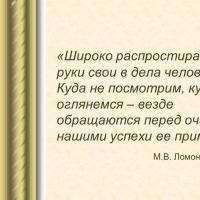 Substances and their physical properties
Substances and their physical properties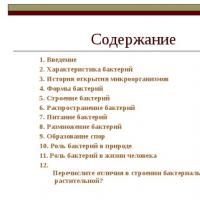 Classification, structure, nutrition and the role of bacteria in nature
Classification, structure, nutrition and the role of bacteria in nature Bacteria - the most ancient organisms on Earth Bacteria - the oldest group of living organisms
Bacteria - the most ancient organisms on Earth Bacteria - the oldest group of living organisms Epithets, metaphors, personifications, comparisons: definitions, examples
Epithets, metaphors, personifications, comparisons: definitions, examples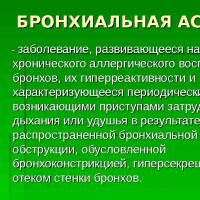 Bronchial asthma Bronchial asthma
Bronchial asthma Bronchial asthma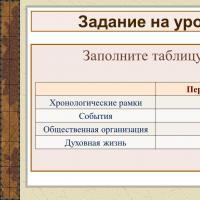 Roman Empire Ancient History
Roman Empire Ancient History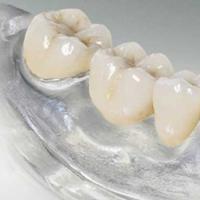 Flexible removable dentures: design, features and benefits Varieties of soft dentures with photos
Flexible removable dentures: design, features and benefits Varieties of soft dentures with photos